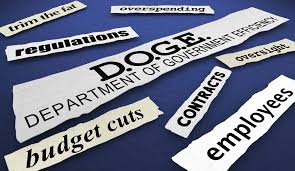Are athletes overpaid?
 Cristiano Ronaldo. LeBron James. Lionel Messi. These are a few examples of athletes that make close to 40 million dollars a year. Athletes are extremely overpaid, considering that their careers do not, arguably, contribute to society in a meaningful way. This opinion is shared by 59% of the population, according to a Zeitgeist survey.
Cristiano Ronaldo. LeBron James. Lionel Messi. These are a few examples of athletes that make close to 40 million dollars a year. Athletes are extremely overpaid, considering that their careers do not, arguably, contribute to society in a meaningful way. This opinion is shared by 59% of the population, according to a Zeitgeist survey.
The average annual salary for a doctor is around $188,000, while the average salary for an NBA player is around $5 million. Similarly, firefighters only make around $46,000 a year, while MLB players make about $4 million a year. Doctors obtain high levels of education and save people’s lives, and firefighters risk their own lives on a daily basis, yet neither make half of what athletes make to play a sport on TV.
More purposeful groups such as organizations that help the homeless, cancer research institutes, and armed forces deserve the money being poured into sports arenas, uniforms, and athletes’ pockets.
Additionally, the President of the United States earns less than professional athletes, making $400,000 a year. The individual who runs America–the Commander in Chief of the military–makes significantly less than those who merely entertain people.
Those who support the high salaries of athletes site the fact that they do provide entertainment to people all around the country. Some note that the high salaries of those in the entertainment industry are proportionate to their profits. Since fans are willing to pay high prices for game tickets, jerseys, and more, sports’ leagues make enough to justify the players’ salaries.
However, there are many people who contribute to athletic events that could be paid more if the athletes did not get paid so much. These include groundskeepers, concessions workers, security guards, trainers, announcers, and hundreds of other employees who work the events. How much, for example, does the worker in the factory that produces the jerseys make? The maintenance staff who cleans the stadium after games? If the sports’ industry makes incredible profits, those profits should be shared by everyone involved, not heaped solely on the athletes.
Some people also argue that athletes spend their whole lives sacrificing, working, and training explicitly to perform the sports that everyone loves to watch. Some note that athletes have a short time that they can play professionally before their body is no longer competitive, so they need to make a lot of money to last them.
However, even if they do go through a lot of training and hard work to perfect their craft, it still does not compare to the money and years, or even decades, that other professions, such as doctors, go through just to get to the first step of their careers. A typical doctor has student loans that average $166,750, according to CBS News. They spend between eleven and fifteen years meeting the requirements to be a doctor. In contrast, the average career lengths of professional athletes, according to the Bleacher Report, are 3.5 years for the NFL, 4.8 for the NBA, and 5.8 for MLB. By the time a high-paid player is finished working for his lifetime, with millions to show for it, a doctor still has ten years of education left, a mountain of student loans, and decades of work ahead–likely never earning what that athlete did in a few short years.
This society needs to get its priorities straight when it comes to salaries and be sure that people who work hard and make positive contributions to society are well-paid.







